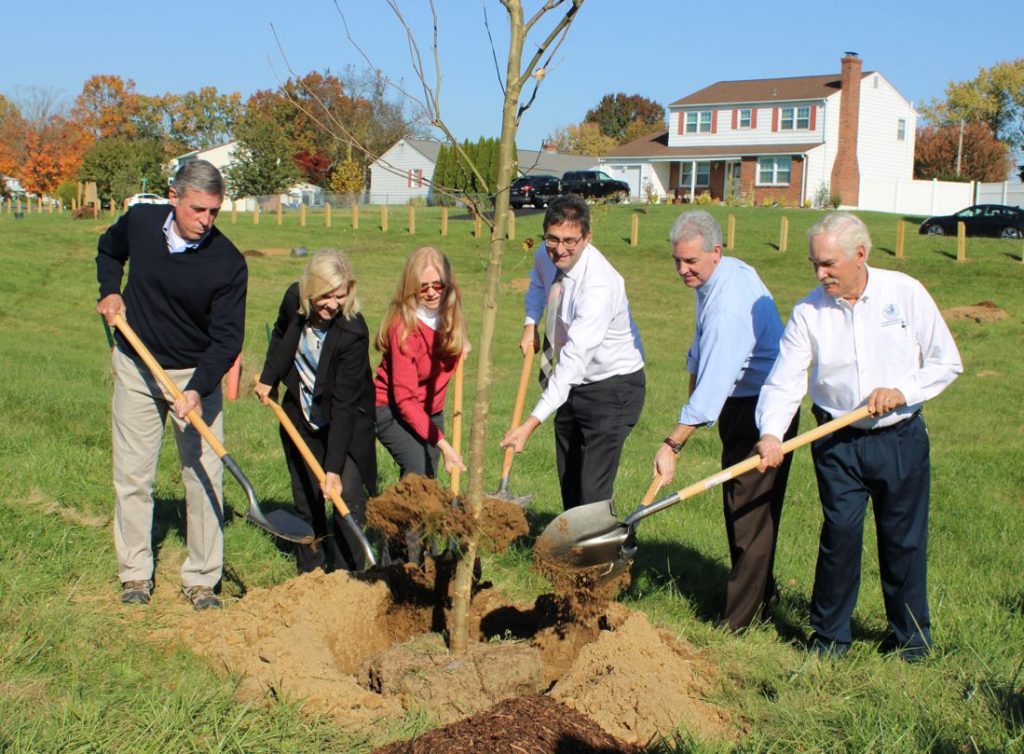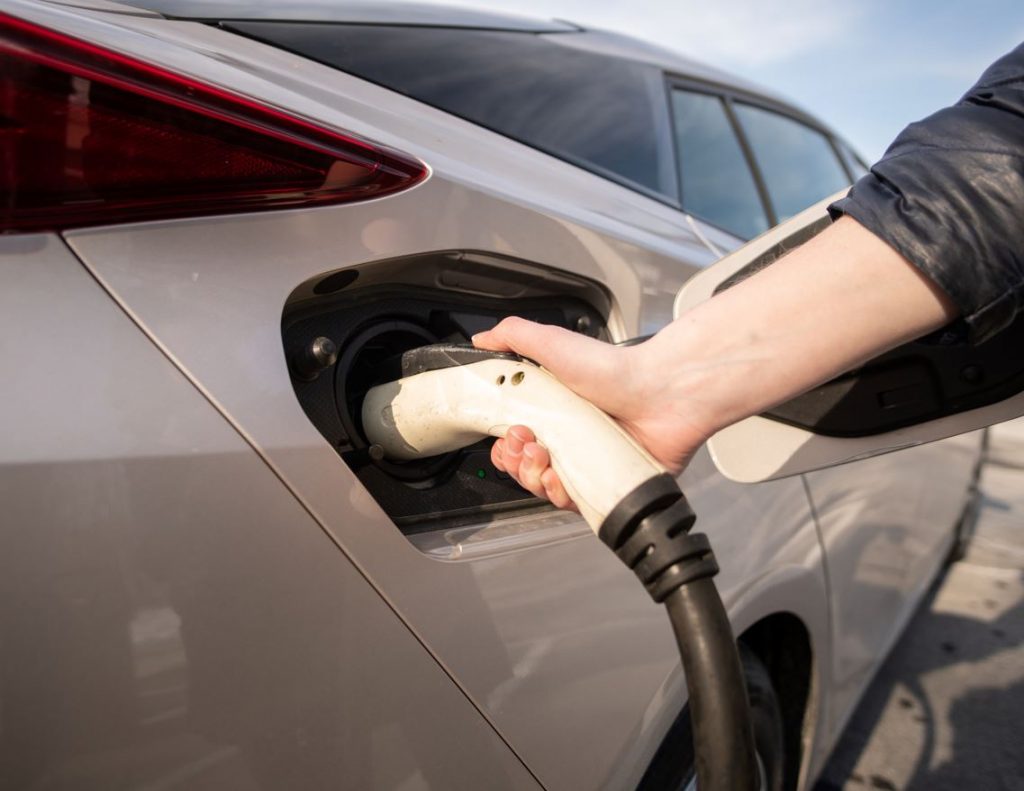Delaware has for more than a decade been working to reduce our greenhouse gas emissions and increase the state’s resilience to climate change. The Climate Action Plan outlines broad strategies and specific actions that can be taken to further those efforts.
The Act (House Bill 99) follows the issuance of Delaware’s Climate Action Plan in 2021, and does the following:
House Bill 10 establishes targets for annual purchase of electric school buses through fiscal year 2030 and requires the Department of Education to submit an annual implementation report through 2029 as well as a comprehensive report in 2030 detailing future recommendations for electric vehicle purchases and other measures to reduce the carbon and environmental impact of the state’s school transportation fleet.
House Bill 11 requires new commercial buildings with a foundation footprint of 50,000 square feet or greater to meet certain requirements to ensure that their roof is able to support solar energy infrastructure.
House Bill 12 creates an Electric Vehicle Rebate Program to incentivize the purchase and lease of new and used electric vehicles by Delaware residents. All-electric vehicles receive a rebate of no more than $2,500 and hybrid vehicles receive a rebate of no more than $1,000.
House Bill 161 allows the Department of Natural Resources and Environmental Control to assist more small businesses and organizations in making energy efficiency improvements to their facilities by raising the proportion of those projects that can be funded through grants or loans by the Energy Efficiency Investment Fund.
Senate Substitute 1 for Senate Bill 7 amends the Delaware Energy Act, Title 29 of the Delaware Code, Chapter 80, Subchapter II, by updating and expanding upon the duties of the State Energy Office (located in the Department of Natural Resources and Environmental Control’s Division of Climate, Coastal and Energy).
Senate Substitute 1 for Senate Bill 103 requires that newly constructed single-family and multi-family residential dwellings include certain electric vehicle charging infrastructure and provides county and municipal government enforcement of the electric vehicle charging infrastructure requirements of this Act.
Senate Bill 111 clarifies and confirms that utilities and farm customers may enter into contracts, such as power supply agreements, that specify how Excess kWh Credits will be applied at the end of an annual billing period.
Senate Bill 126 clarifies that state building code and other local codes must align with substitute standards for refrigerants as approved by the United States Environmental Protection Agency through their federal listing requirements.
Senate Bill 170 directs the Department of Natural Resources and Environmental Control to work with PJM Interconnection, LLC to study the transmission impacts of offshore wind development, to work with neighboring states on offshore wind transmission, and to study and report back to the Governor and the General Assembly on a process for procuring offshore wind power. (Read the Report)
The following are additional actions that have occurred since the Climate Action Plan was released in November 2021.

DNREC launched the Tree For Every Delawarean Initiative (TEDI) in November 2021. An online database, the TEDI Tracker, allows people to post their plantings and have them added to the total with a goal of planting 1 million trees.
DNREC is supporting and mentoring a NOAA Margaret A. Davidson Fellow conducting a research project titled “Tracking marsh migration and subsequent upland forest retreat from sea level rise using remote sensing.” This project will help identify areas in Delaware’s coastal forests which have experienced losses due to flooding and salt stress from sea level rise and coastal storms.

DNREC released a competitive request for proposals (RFP) in Fall 2021 for $1.4 million to provide incentives to encourage businesses to install and operate DC-Fast charging stations for electric vehicles. Funds are from the VW Mitigation Trust. It is anticipated that this will fund 3-5 project sites.
In March 2022, Gov. John Carney announced that Delaware would begin the process of gathering public and stakeholder input on California’s Advanced Clean Car II (ACC II) regulations. The program is designed to accelerate the commercialization of battery electric, plug-in hybrid and fuel cell electric vehicles, and would require light-duty vehicle manufacturers to make specific quantities of zero-emission vehicles available for sale in the state beginning with the 2027 model year.
On July 1, 2022, DNREC launched a Low- to Moderate-Income Solar Pilot Program. The program seeks to test expansion of residential solar photovoltaic systems into these market segments, which have been underserved by existing renewable energy assistance programs. Experience acquired by the department during the two-year pilot program will be used to develop a statewide solar program that will provide services to low- to moderate-income homes regardless of electric utility service territory.
DelDOT and DNREC are working together to create a statewide electric vehicle infrastructure plan. The goal is to better understand where charging stations should be located based on how many electric vehicles we expect to see on the roads in the coming years.

The NEVI program will provide nearly $15 million in federal dollars to Delaware over a five-year period to deploy fast and reliable electric vehicle charging stations along highways. DelDOT has submitted its plan to the Federal Highway Administration and the Joint Office of Energy and Transportation for approval.
Gov. John Carney signed legislation which expands access and removes some barriers to community solar project development and makes it easier for low-income residents to access community solar.
Delaware’s Department of Transportation created a new Division of Resiliency and Sustainability to centralize efforts to improve the resiliency of the state’s transportation network and focus on sustainability.
Gov. John Carney signed legislation increasing Delaware’s Renewable Energy Portfolio Standard to 40 percent by 2035. Prior to the legislation, Delaware’s Renewable Energy Portfolio goal was 25 percent by 2025.
Related Topics: actions, climate, climate action, climate change, climate coastal energy, climate plan, energy, plan